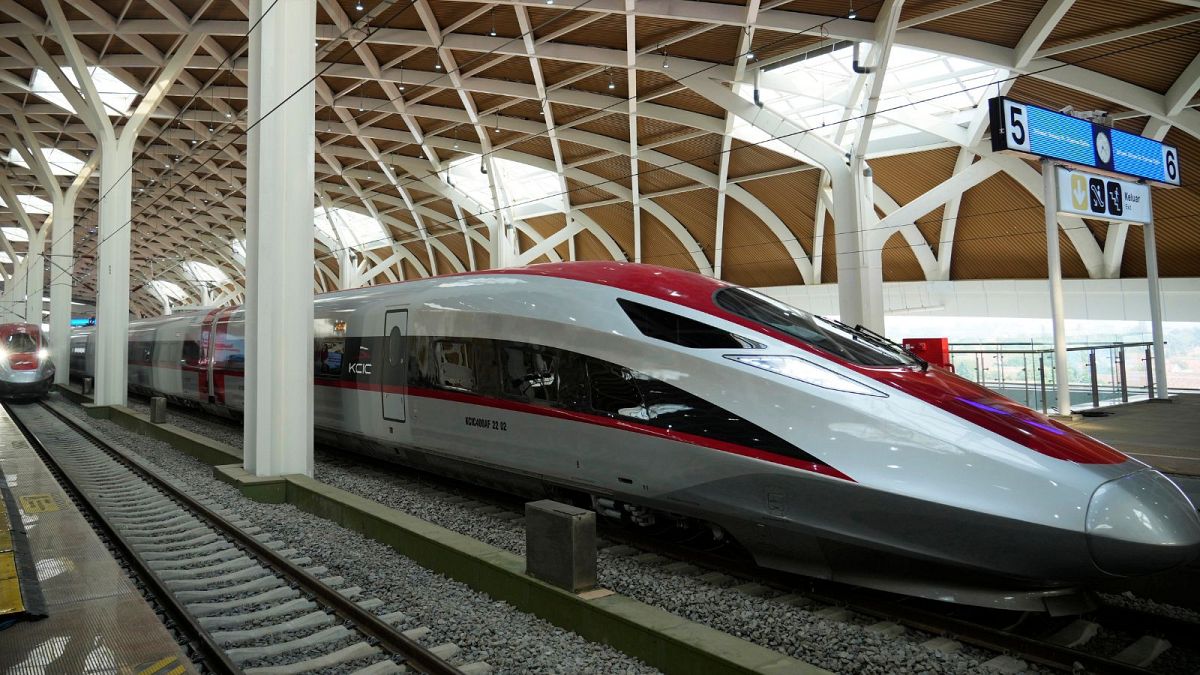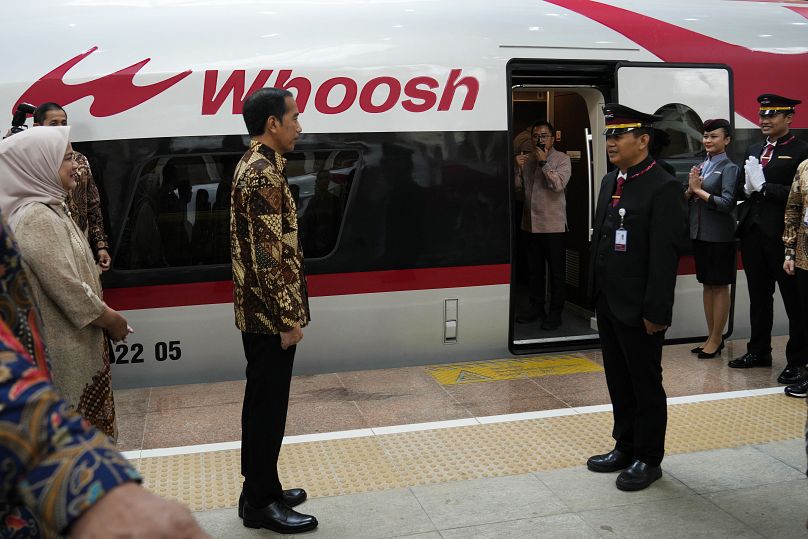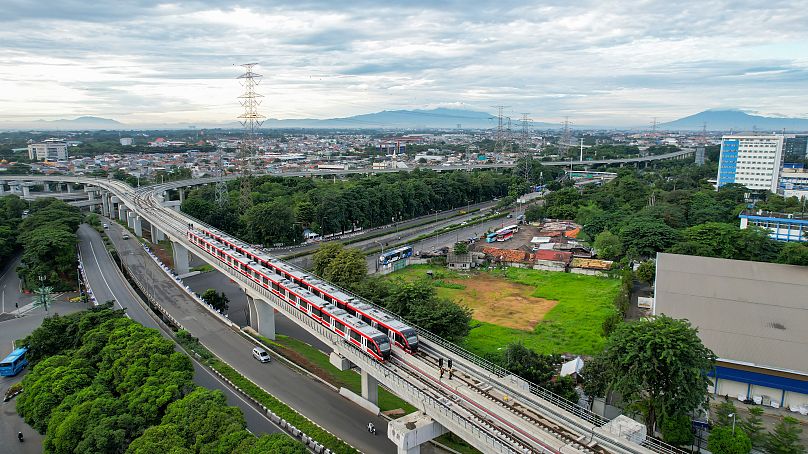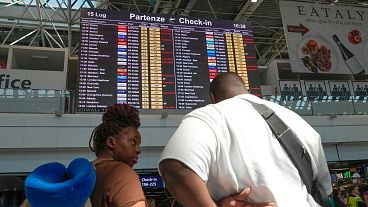The Jakarta to Bandung trains have been adapted to Indonesia's tropical climate, and are able to track earthquakes and floods.
Southeast Asia’s first high-speed railway launched in Indonesia this week.
The new rail service connects Indonesia's capital of Jakarta with Bandung, the busy capital of West Java province. With trains racing up to 350 km per hour, it has slashed journey times between the two cities from three hours to around 40 minutes.
The bullet train is largely funded under China’s Belt and Road (BRI) infrastructure initiative; an ambitious plan by the superpower to develop new trade routes with the rest of the world.
Indonesian President Joko Widodo has hailed the Jakarta-Bandung high-speed train as a mark of “the modernisation of our mass transportation, which is efficient and environmentally friendly.”
Speaking at its inauguration on Monday, he said: “Our courage to try new things gives us confidence and the opportunity to learn and will be very useful for the future, making our human resources more advanced and our nation more independent.”
How much did the new Jakarta-Bandung railway cost?
The high-speed railway is named “Whoosh,” from “Waktu Hemat, Operasi Optimal, Sistem Handal,” which means “timesaving, optimal operation, reliable system” in Indonesian language.
Though it’s set to be the region’s speediest service, Whoosh has been a long time coming.
Rail construction began in 2016 and it was originally expected to start running in 2019, but was delayed by four years over land and environmental disputes.
The 142.3 kilometre railway worth $7.3 billion (almost €7 billion) was constructed by PT Kereta Cepat Indonesia-China (PT KCIC) a joint venture between an Indonesian consortium of four state-owned companies and China Railway International.
The trains will also be equipped with electric motors, each with a power of 625,000 watts. Its use of electrical energy is expected to reduce carbon emissions, AP reports.
How much are Jakarta-Bandung train tickets?
Onboard, customers are divided into three classes: VIP, first and second.
Several cars with large spaces between seats will be allocated for passengers with limited mobility.
Ticket prices had not been finalised as of Monday, but PT KCIC estimated one-way prices per passenger would range from 250,000 rupiah (€15) for second class to 350,000 rupiah (€22) for VIP seats.
Is the Jakarta-Bandung bullet train safe to ride?
The trains will be the fastest in Southeast Asia, according to China’s CRRC Qingdao Sifang railway company, which designed and built the train cars.
It says the vehicles will rattle along at 350 kilometres per hour and pass curves with a minimum radius of 150 metres.
Following a 25-minute test ride on 13 September, Widodo told reporters that he felt comfortable sitting or walking inside the bullet train even at its top speeds.
The manufacturer said the trains are specifically modified to adapt to Indonesia's tropical climate, and are equipped with an improved security system that has the ability to track earthquakes, floods and other emergency conditions.
What other new Indonesian rail lines are in the works?
The project is part of a 750-kilometre high-speed train plant that will cut across four provinces on the main island of Java and end in the country’s second-largest city of Surabaya.
Infrastructure improvement, Widodo’s signature policy, helped him win a second term in 2019 elections.
Jakarta’s subway - an ongoing, Japan-backed venture - was launched in 2019 as part of the capital’s efforts to ease traffic congestion.
The government has completed other rail projects, including light-rail transit (LRT) services in Palembang and Jakarta.
Indonesia’s popular tourist island of Bali is among five other cities which also have LRT plans in the pipeline.





